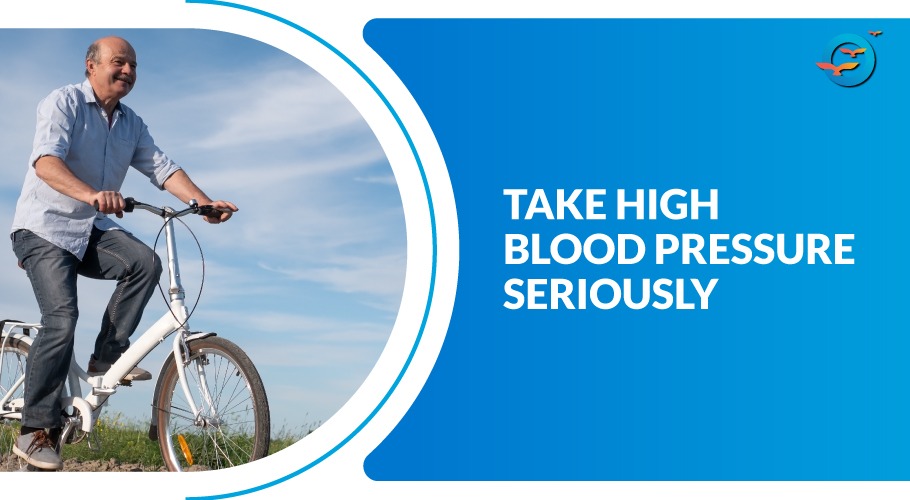Is High Blood Pressure Really a Big Deal?
High blood pressure (HBP), also known as hypertension, is a common yet often overlooked health condition. It may not show obvious symptoms in the early stages, earning it the nickname “silent killer.” Despite the lack of warning signs, it quietly damages vital organs, increasing the risk of serious complications over time. Understanding, monitoring, and managing high blood pressure is crucial for maintaining long-term health.
What Exactly Is High Blood Pressure?
Blood pressure refers to the force of blood pushing against the walls of your arteries as your heart pumps it throughout the body. A typical healthy reading is around 120/80 mm Hg. When readings consistently reach 130/80 mm Hg or higher, it is classified as high blood pressure. Over time, this extra pressure strains your cardiovascular system and can damage organs such as the heart, kidneys, brain, and eyes.
Why High Blood Pressure Matters
Many people underestimate high blood pressure because it doesn’t always produce immediate pain or discomfort. However, its effects are cumulative and can be severe. Persistent high BP increases the likelihood of several serious health problems:
-
Heart disease: The added pressure can cause arteries to narrow, making the heart work harder. This significantly raises the risk of heart attacks and other heart-related conditions.
-
Stroke: High blood pressure can weaken and damage blood vessels in the brain, potentially causing a stroke.
-
Kidney issues: The kidneys filter waste from the blood. Hypertension can impair their function, sometimes leading to kidney failure over time.
-
Vision problems: Damage to the small blood vessels in the eyes may result in partial or complete vision loss.
-
Cognitive decline: Long-term high blood pressure is associated with memory problems and an increased risk of dementia.
Even without symptoms, HBP is affecting your body in ways you may not feel. That’s why regular monitoring is essential, especially for adults over 30 or those with a family history of hypertension.
How You Can Take Control
The encouraging news is that high blood pressure can often be managed effectively through lifestyle changes and, in some cases, medications. Taking proactive steps today can prevent serious complications in the future. Here’s how:
-
Adopt a healthy diet: Focus on fruits, vegetables, whole grains, and lean proteins. Limit salt, sugary foods, and processed items that can elevate blood pressure. Diets like DASH (Dietary Approaches to Stop Hypertension) are particularly effective.
-
Stay physically active: Regular exercise strengthens the heart, improves circulation, and helps maintain healthy blood pressure. Aim for at least 30 minutes of moderate activity, such as brisk walking, cycling, or swimming, most days of the week.
-
Prioritize sleep: Poor sleep quality or insufficient rest can contribute to higher blood pressure. Adults should aim for 7–8 hours of sleep each night.
-
Avoid harmful habits: Limit alcohol consumption and quit smoking. Both can raise blood pressure and damage blood vessels.
-
Manage stress: Chronic stress affects blood pressure. Mindfulness techniques, yoga, meditation, or even simple deep-breathing exercises can help reduce stress levels.
In addition to lifestyle changes, your doctor may prescribe medications to help control blood pressure. Regular health checkups are essential for tracking your readings and adjusting treatment as needed.
Why Ignoring High Blood Pressure Can Be Dangerous
High blood pressure is more than just a number—it is a silent warning sign. Ignoring it may feel harmless, but the long-term consequences are serious and sometimes irreversible. It gradually affects multiple organs, increases the risk of heart attacks, strokes, kidney failure, and other chronic health issues.
Final Thoughts
The good news is that high blood pressure is manageable. With small, consistent changes in lifestyle, stress management, and medical guidance when needed, you can significantly reduce your risk of complications. Monitoring your blood pressure regularly, eating well, staying active, and managing stress are simple yet powerful steps to protect your health.
Remember, taking action now can make a substantial difference later. High blood pressure doesn’t have to control your life. By making mindful choices today, you can safeguard your heart, brain, kidneys, and overall well-being for the years ahead.
Read more: Is High Blood Pressure Really a Big Deal?



